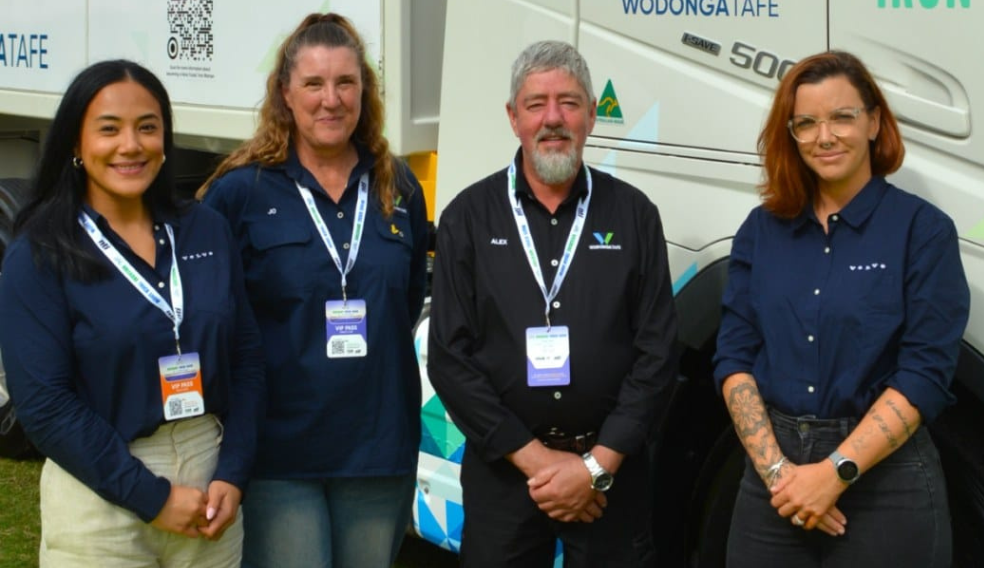Transport & Logistics Aug 19, 2025
Driving Change: Women Powering the Future of Australia’s Transport and Logistics Industry
The transport and logistics (T&L) industry is growing, with truck driver shortages emerging as a critical national issue. Women are increasingly becoming a vital part of this journey. Historically male-dominated, the sector is now seeing growth in female participation, thanks to targeted initiatives and strong partnerships.
The T&L industry employs more than 581,000 people across Australia. Female participation in operational roles has grown modestly over the past 20 years from 15.1% in 2004 to 18.9% in 2024. While women are well represented in administrative roles such as Logistics Clerks (45.4%) and Mail Sorters (39.2%), their presence in operational roles remains limited, with only 5.5% of Truck Drivers and 4.4% of Crane, Hoist, and Lift Operators being women. Learn more from the Transport & Logistics 2025 Workforce Plan.
These figures highlight chronic driver shortages that hinder one of the most needed sectors. Sourcing skilled drivers is increasingly difficult, and promoting diversity is key to the sustainability of the T&L workforce.
The Iron Women Program, tailored from the original Women Driving Transport Careers model, offers female-only truck licensing training and employment opportunities. Over 350 women have completed the program with many employed as drivers and some advancing into leadership roles.
Volvo, which has successfully implemented similar programs in countries including France, South Africa, and Peru, has now joined forces with Wodonga TAFE’s Driver Education Centre of Australia (DECA) to facilitate the program locally. The initiative is gaining momentum, with a range of larger companies coming on board. The program equips women with heavy vehicle licensing and provides a pathway to a Certificate III in Driving Operations, opening doors to long-term careers in the transport industry.
“Collaboration between education and industry is key to creating real, long-term change. Programs like Volvo Iron Women demonstrate what’s possible when we align high-quality training with real-world industry needs. At Wodonga TAFE, we’re proud of our long-standing commitment to creating pathways for women into the transport and logistics sector. Through initiatives like this, we’re not only addressing critical skills shortages, but we’re also building a more inclusive, diverse, and future-ready workforce that reflects the communities it serves.” Victoria Conlan, Executive Director Communications Engagement and Experience.
To further support the industry and drive change, ISA is leading key projects focused on strengthening career pathways and workforce capability across the T&L sector. One cornerstone initiative is the Transport and Logistics Career Information Project, which will develop comprehensive information on key job roles, role descriptions, skills and knowledge requirements, qualifications and training programs, and career pathway mapping for priority occupations to support clear pathways for the future.
Additionally, three new projects were developed through consultation with industry - Addressing Heavy Vehicle Driver Shortages, Skilling Heavy Drivers and Licensing Update, and Review of Dangerous Goods Driver Training. These initiatives respond to ongoing struggles to attract and retain workers and are based on the National Heavy Vehicle Driver Competency Framework and the National Heavy Vehicle Driver Action Plan, which clearly articulate the actions and responsibilities required to address critical skills gaps in this growing sector.
Programs like the Iron Women Program and recent industry projects, offer Transport and Logistics (T&L) industry stakeholders a clear way forward for addressing priority areas through collaborative action.
[L-R] Iron Women participant Magadalene Faaumu, Jo Bathols (Wodonga TAFE), Alex Stojanov(Wodonga TAFE) and Jacqui Lawson, also from the Iron Women program. Image: David Vile. Image from Big Rigs.
